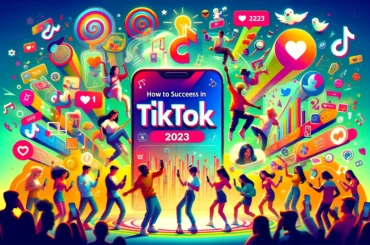Introduction
Welcome to the world of App Marketing powered by Artificial Intelligence (AI). In this chapter, we’ll delve into AI’s crucial role in promoting mobile applications, particularly in optimizing app store visibility, enhancing user engagement, and boosting revenue. Let’s embark on a journey to explore how AI tools are revolutionizing the app marketing landscape.
The Role of AI in App Marketing
Staying ahead of the competition is essential in the ever-evolving realm of app marketing. AI has emerged as a game-changer, offering innovative solutions to transform how we promote and grow our apps. With the help of AI algorithms and machine learning, marketers can now make data-driven decisions, automate repetitive tasks, and harness the power of data to reach the right audience.
Leveraging AI Tools for App Promotion
AI-powered tools like App Radar, AppsFlyer, and others have become indispensable for app marketers. These tools provide various functionalities, from suggesting relevant keywords to automating review responses and optimizing conversion rates. We’ll explore how these tools can streamline app marketing efforts and drive better results.
Overview of the Transcript
Before diving deeper into AI-driven app marketing, let’s briefly recap the insights gleaned from the provided transcript. The conversation touched on various aspects, including AI-powered keyword selection, automating review responses, multilingual support, the risks of buying reviews, Apple’s approval processes, and tracking revenue by specific keywords. These aspects will be explored in detail in the subsequent chapters, providing a comprehensive understanding of the subject matter.
Now that we’ve set the stage let’s move forward and explore how AI can revolutionize your app marketing strategies.
Using AI for Keyword Selection
Effective keyword selection must be balanced in the ever-competitive landscape of mobile app marketing. Your app’s visibility in app stores heavily relies on the right keywords. This chapter will explore how AI transforms how we select keywords, optimize mobile apps, and improve app ranking.
AI-Powered Keyword Suggestions
Traditional keyword research can be time-consuming, often resulting in a limited pool of keywords. However, AI has revolutionized this aspect of app store optimization (ASO). AI-powered tools like App Radar and AppFollow offer a treasure trove of keyword suggestions.
Leveraging AI Algorithms
AI algorithms analyze vast datasets, including user search queries and competitor apps, to generate a comprehensive list of potential keywords. These algorithms identify relevant keywords and consider their search volume, competition, and relevance to your app.
Streamlining Keyword Research
Instead of manually brainstorming keywords, app marketers can use AI to provide data-backed suggestions. This saves time and ensures you take advantage of valuable keywords that might have been overlooked.
Filtering Keywords for Relevance
Having a long list of keywords is just the first step. The next challenge is identifying the most relevant keywords for your app. AI doesn’t stop at keyword generation; it helps you filter and refine your keyword list.
AI-Driven Relevance Scoring
AI tools often assign relevance scores to keywords based on factors like app category, user intent, and search trends. This scoring system aids in prioritizing keywords that are more likely to drive organic app visibility.
Data-Backed Decision-Making
AI eliminates the guesswork. It provides you with data-driven insights on which keywords have the potential to yield the best results. This approach empowers you to make informed decisions and optimize your ASO strategy.
Building an Effective Keyword System
Once you have your list of carefully curated keywords, the next step is to organize them effectively. This is where AI can assist in structuring your keyword system for maximum impact.
Grouping Keywords
AI tools can automatically categorize keywords into groups based on similarities in intent or relevance. These keyword groups can then optimize different elements of your app store listing, such as the app title, subtitle, and description.
Monitoring and Iteration
Keyword optimization is an ongoing process. AI can continuously monitor keyword performance and suggest adjustments as trends change or new keywords emerge. This ensures your app remains competitive and visible in a dynamic market.
In summary, AI has revolutionized how we approach keyword selection for app store optimization. AI-driven tools are indispensable for modern app marketers, from generating keyword suggestions to refining them for relevance and structuring an effective keyword system. The following chapters will explore more facets of AI’s role in-app marketing.
Automating Review Responses
In the fast-paced world of mobile app development, user reviews play a pivotal role in shaping an app’s reputation and success. However, managing and responding to these reviews can be a time-consuming task. This chapter delves into how AI can automate the process of review responses, ensuring that your app’s users feel heard and valued.
Connecting to Apple’s Review API
To effectively automate review responses, it’s essential to have a seamless connection to the platforms where your app is listed. Apple’s Review API provides a direct channel to access and respond to user reviews on the App Store.
The Power of Automation
By integrating with Apple’s Review API, app developers can automate retrieving user reviews, including positive and negative feedback. This automation ensures that no review goes unnoticed, regardless of when it was posted.
Scheduling and Organization
An AI-driven system can schedule review responses, ensuring users receive timely replies. Moreover, these responses can be organized and categorized, making addressing specific issues and concerns easier.
Streamlining Review Management
Managing user reviews manually can be overwhelming, especially for apps with a significant user base—AI steps in to streamline the entire process, from identifying critical reviews to drafting personalized responses.
Sentiment Analysis
AI algorithms excel at sentiment analysis, identifying whether a review is positive, negative, or neutral. This categorization enables apps to prioritize responding to negative reviews promptly.
Automated Responses
For common issues raised in reviews, AI can generate automated responses acknowledging the problem and offering a solution. This not only saves time but also ensures consistency in communication.
Enhancing User Engagement through AI
Beyond addressing issues, AI-powered review responses can enhance user engagement in several ways.
Personalization
AI can personalize responses based on user feedback. For instance, if a user frequently mentions a specific feature, the AI can tailor responses to highlight improvements or updates related to that feature.
Language Support
As apps go global, user reviews come in various languages. AI’s language processing capabilities enable it to respond to reviews in different languages, expanding the reach of your app’s support.
Now we’ve explored how AI can revolutionize how you handle user reviews. From connecting to Apple’s Review API to streamlining management and enhancing user engagement, AI brings efficiency and personalization to responding to user feedback. In the upcoming chapters, we’ll continue uncovering AI’s multifaceted role in-app marketing.
Multilingual Review Responses
In a globalized app market, reaching users from diverse linguistic backgrounds is essential for success. This chapter explores how AI can tackle the challenge of multilingual review responses, ensuring effective communication and engagement across borders.
Overcoming Language Barriers with AI
Language is both a bridge and a barrier to connecting with users worldwide. AI-powered language translation and comprehension capabilities are pivotal in transcending these barriers.
Automated Translation
AI algorithms can swiftly translate user reviews from various languages into the language understood by the app developer. This enables developers to comprehend feedback in their preferred language.
Multilingual Support
AI is not limited to a single language. It can handle many languages simultaneously, ensuring user review is noticed and addressed.
Customizing Responses for Different Languages
Effective communication isn’t just about understanding the language; it’s also about cultural nuances and preferences. AI can customize responses for different languages and cultures.
Cultural Sensitivity
AI can be programmed to understand and respect cultural sensitivities, ensuring appropriate and respectful responses.
Tailored Solutions
Responses can be tailored to suit users’ linguistic and cultural preferences, creating a personalized and relatable experience.
Ensuring Consistency in Communication
Consistency is key to building trust and credibility. AI ensures that responses remain consistent across languages and over time.
Response Templates
Developers can create response templates that consistently address common issues, regardless of the language.
Tone and Style
AI can adapt responses to match the tone and style of communication users prefer in different regions.
In this chapter, we’ve explored how AI can break down language barriers, provide customized responses, and ensure consistency in communication when dealing with user reviews in multiple languages. The ability to engage with users from diverse linguistic backgrounds opens up new avenues for app growth and success. In the subsequent chapters, we’ll continue our journey through the intricacies of AI-driven app marketing.
The Risks of Buying Reviews
In the ever-competitive app marketing world, the temptation to boost your app’s reputation by purchasing reviews can be alluring. However, this chapter delves into this strategy’s potential pitfalls and risks, highlighting why buying reviews may be a bad idea.
The Temptation of Purchasing Reviews
Before we explore the risks, it’s essential to understand why some app developers are tempted to buy reviews in the first place.
Quick Visibility
Purchasing positive reviews can give your app an instant boost in visibility, potentially attracting more users.
Competitive Advantage
Positive reviews can make your app stand out in a crowded app marketplace.
App Store Rankings
Higher ratings and positive reviews can improve app store rankings, increasing discoverability.
Why Buying Reviews May Not Be a Good Idea
While the short-term benefits may seem appealing, there are several compelling reasons why buying reviews may backfire.
Ethical Concerns
Fake reviews deceive users and violate the ethical guidelines set by app stores.
User Trust
Users are becoming more discerning. Suspiciously positive reviews can erode trust and credibility.
App Store Penalties
App stores are cracking down on fake reviews, and getting caught can result in severe penalties.
Alternative Strategies for App Growth
Rather than resorting to questionable tactics, consider alternative strategies to boost your app’s growth and reputation.
Organic Growth
Focus on genuine user acquisition through marketing efforts, ASO, and user engagement strategies.
Incentivized Reviews
Encourage real users to leave reviews by offering incentives like premium features or in-app currency.
Respond to Feedback
Engage with users and address their concerns. Positive responses to negative reviews can turn things around.
While the allure of buying reviews may seem tempting, the risks far outweigh the benefits. Ethical, sustainable, and user-centric strategies are the keys to long-term success in the competitive app market. The following chapters explore more ethical and effective methods to enhance your app’s visibility and reputation.
Apple’s Approval for AI Review Replies
In-app marketing, ensuring that your AI-powered review responses meet Apple’s guidelines and gain approval is crucial. This chapter dives into the intricacies of understanding Apple’s policies, securing API approval, and complying with their regulations while implementing best practices for AI-driven responses.
Understanding Apple’s Policies
Before you begin using AI for review responses on Apple’s platform, it’s essential to understand their policies. Apple places a high emphasis on user experience, privacy, and authenticity.
User-Centric Approach
Apple’s primary concern is the well-being of its users. Any AI responses must enhance the user experience, not detract from it.
Privacy Matters
Respect user privacy. AI responses should not access or share personal user information.
Authenticity and Transparency
Apple values authentic interactions. AI responses should not mislead users into thinking they engage with a human.
API Approval and Compliance
To integrate AI into your app’s review management, you must seek API approval from Apple. This involves submitting your app for review, ensuring it complies with Apple’s policies, and gaining the necessary permissions.
App Submission
Prepare your app for submission, ensuring it meets Apple’s standards in all aspects.
API Access
Apply for access to Apple’s Review API, detailing how AI will enhance your review responses.
Compliance Check
Apple will assess your app and its AI-powered features to ensure compliance with their policies.
Best Practices for AI-Powered Responses
Once you’ve secured API approval, it’s time to implement AI-powered review responses effectively. Follow these best practices to ensure your responses align with Apple’s guidelines.
User-Focused Language
Craft responses that prioritize user needs and provide helpful information.
Transparent AI Use
Indicate when a response is generated by AI, maintaining transparency.
Continuous Improvement
Regularly review and update AI responses to adapt to changing user feedback and preferences.
By adhering to Apple’s policies, obtaining API approval, and implementing best practices, you can leverage AI to enhance your app’s review management and provide a better user experience. In the upcoming chapters, we’ll explore other aspects of AI-driven app marketing to optimize your app’s visibility and success further.
AI for Conversion Rate Optimization
In the dynamic world of app marketing, staying competitive means continuously optimizing your app’s conversion rates. Artificial intelligence (AI) plays a pivotal role in achieving this, allowing you to attract users and convert them into loyal customers. This chapter explores the impact of AI on conversion rates, strategies for initial keyword selection, and the importance of continuous monitoring for optimization.
The Impact of AI on Conversion Rates
Conversion rate optimization (CRO) is about turning app visitors into engaged users. AI has revolutionized this process by providing insights and automation capabilities to boost conversion rates significantly.
Data-Driven Decision Making
AI analyzes vast datasets to identify user behaviors, preferences, and pain points, enabling data-driven decisions.
Personalization
AI tailors user experiences by offering personalized recommendations, content, and features, leading to higher conversion rates.
A/B Testing Automation
AI can automate A/B testing, quickly identifying which variations yield the best conversion rates.
Initial Keyword Selection and Conversion
Keywords are the bridge between potential users and your app. AI-powered keyword selection is a game-changer for attracting the right audience and improving conversion rates.
Comprehensive Keyword Research
AI tools can perform in-depth keyword research, identifying high-impact keywords for your app.
Keyword Relevance
AI helps ensure your target keywords are relevant to your app’s content, increasing user engagement.
Competitor Analysis
AI can analyze your competitors’ keyword strategies, allowing you to identify opportunities and gaps.
Continuous Monitoring for Optimization
Conversion rate optimization isn’t a one-time effort; it’s an ongoing process. AI excels in this aspect by providing continuous monitoring and optimization capabilities.
Real-Time Analytics
AI offers real-time insights into user interactions, enabling you to adapt strategies quickly.
Predictive Analytics
AI can predict future trends and user behaviors, helping you stay ahead in optimization efforts.
Iterative Improvements
AI-driven optimization is iterative, with constant testing and refinement to maximize conversion rates.
As you delve into the world of AI for conversion rate optimization, remember that it’s about attracting users and engaging them effectively. The strategies and insights presented in this chapter will serve as a valuable foundation for your app marketing journey, ensuring that your app ranks well and converts users into loyal customers.
Tracking Revenue by Specific Keywords
In the competitive landscape of app marketing, understanding the financial impact of your efforts is paramount. Tracking revenue by specific keywords is a strategic approach that provides invaluable insights for informed marketing strategies.
The Importance of Revenue Attribution
Effective app marketing isn’t just about boosting downloads but maximizing revenue. You need to attribute revenue to specific keywords to achieve this, as this data is instrumental in optimizing your marketing efforts.
Understanding User Behavior
Tracking revenue by keywords helps you understand how keywords influence user behavior and purchasing decisions.
ROI Analysis
It enables you to calculate each keyword’s return on investment (ROI), ensuring that your marketing budget is allocated wisely.
Identifying High-Value Keywords
By identifying high-value keywords, you can focus your resources on the keywords that generate the most revenue.
Using Tenjin for Keyword-Based Revenue Tracking
Tenjin is a powerful tool that empowers app marketers to track revenue by specific keywords. It offers several features that make revenue attribution seamless and insightful.
Integration with App Stores
Tenjin seamlessly integrates with major app stores, allowing you to access revenue data directly.
Granular Tracking
It provides granular tracking, allowing you to accurately attribute revenue to individual keywords.
Cohort Analysis
Tenjin’s cohort analysis helps you understand how different user groups contribute revenue.
Insights for Informed Marketing Strategies
Tracking revenue by specific keywords is not just about data collection; it’s about deriving actionable insights.
Keyword Performance
Identify which keywords drive the most revenue and prioritize them in your ASO strategy.
User Segmentation
Segment users based on their keyword interactions and tailor marketing campaigns accordingly.
Budget Allocation
Optimize your marketing budget by investing more in keywords with a high revenue contribution.
You can transform your app marketing from a guessing game into a data-driven strategy by implementing revenue tracking by specific keywords. This approach empowers you to make informed decisions, maximize revenue, and stay ahead in the competitive app market.
Conclusion
As we wrap up our comprehensive exploration of app store optimization (ASO) empowered by artificial intelligence (AI), it’s crucial to recap the key insights, reflect on the significance of embracing AI in-app marketing, and glimpse into the future of AI-driven app promotion.
Recap of Key Insights
Throughout this guide, we’ve delved deep into various facets of ASO and how AI can revolutionize app marketing. Here’s a quick recap of some essential takeaways:
- AI-powered keyword selection enhances app visibility and drives organic downloads.
- Automating review responses using AI saves time and boosts user engagement.
- Multilingual review responses break language barriers and foster global user satisfaction.
- Buying reviews might seem tempting, but it often comes with risks, and alternative strategies are worth exploring.
- Understanding Apple’s policies and ensuring API compliance are critical for AI-powered review replies.
- AI significantly impacts conversion rates, and continuous monitoring and optimization are key.
- Tracking revenue by specific keywords provides valuable insights for informed marketing strategies.
Embracing AI in App Marketing
Integrating AI into app marketing isn’t just a trend; it’s a necessity. AI-driven strategies offer unparalleled advantages:
- Precise keyword selection based on user behavior and trends.
- Improved user engagement through AI-enhanced review responses.
- Expansion into global markets with multilingual support.
- Data-driven decision-making for sustainable growth.
- Enhanced visibility and ranking in app stores.
The Future of AI-Driven App Promotion
As technology continues to evolve, so will AI-driven app promotion. Here are some exciting prospects for the future:
- Enhanced personalization: AI will tailor app experiences based on individual preferences.
- Predictive analytics: AI will anticipate user needs and behaviors, optimizing real-time marketing strategies.
- Voice search optimization: With the rise of voice-activated devices, AI will play a pivotal role in voice search ASO.
- Advanced AI algorithms: Algorithms will become even more intelligent, adapting to changing app store algorithms.
AI is no longer on the horizon; it’s transforming app marketing into a dynamic, data-driven field. By harnessing the power of AI, app developers and marketers can survive and thrive in the competitive world of mobile apps. Embrace AI, stay agile, and adapt to the evolving landscape to secure your app’s success. The future of AI-driven app promotion holds limitless potential, and those who seize it will lead the way.
FAQs: Demystifying AI in App Marketing
AI has become a game-changer in the mobile app industry, and understanding its impact is crucial for app developers and marketers. Let’s dive into these frequently asked questions and shed light on the profound transformation AI can bring to app marketing.
Can AI improve the effectiveness of app marketing?
Absolutely. AI is a powerful tool that can significantly enhance the effectiveness of app marketing. Here’s how:
- Targeted User Engagement: AI can analyze user behavior and preferences to deliver personalized content and recommendations, improving user engagement.
- Optimized Keyword Selection: AI algorithms can identify the most relevant keywords and phrases to boost app visibility and downloads.
- Automated Processes: AI can automate repetitive tasks, such as review responses, saving time and increasing efficiency.
- Data-Driven Decision Making: AI provides valuable insights based on data analysis, helping app marketers make informed decisions.
What are the benefits of using AI for keyword selection?
AI-driven keyword selection offers several key advantages:
- Data-Backed Decisions: AI analyzes vast amounts of data to identify high-performing keywords, ensuring your app ranks higher in search results.
- Constant Optimization: AI continuously monitors keyword performance and adjusts your strategy to adapt to changing trends and user behavior.
- Competitive Edge: AI helps you stay ahead of competitors by identifying keywords they may have missed.
- Improved Conversion Rates: Relevant keywords drive more qualified traffic, leading to higher conversion rates.
How can AI help in responding to app reviews in multiple languages?
AI simplifies the process of responding to app reviews in multiple languages by:
- Language Detection: AI can automatically detect the language of the review, ensuring responses are in the appropriate language.
- Translation: AI-powered translation tools can quickly and accurately translate reviews and responses.
- Consistency: AI helps maintain a consistent tone and messaging across different languages, enhancing user satisfaction.
- Efficiency: Responding to reviews in multiple languages manually can be time-consuming. AI streamlines the process, saving time and effort.
What are the risks associated with buying app reviews?
Buying app reviews may seem like a shortcut to success, but it comes with significant risks:
- Reputation Damage: Fake reviews can damage your app’s reputation and credibility, leading to user distrust.
- App Store Penalties: App stores have strict policies against fake reviews. Violations can result in penalties, including app removal.
- Short-Term Gains, Long-Term Losses: While buying reviews may boost your ranking temporarily, it won’t lead to sustainable growth or loyal users.
- Legal Consequences: In some cases, engaging in review fraud can lead to legal repercussions.
How does Apple regulate AI responses to app reviews?
Apple has stringent guidelines for AI-powered responses to app reviews. App developers must adhere to these guidelines to ensure compliance:
- Transparency: Responses must indicate that AI generates them.
- Accuracy: AI responses should provide accurate and relevant information to address user concerns.
- Consistency: Responses should maintain a consistent tone and quality across all reviews.
- User Consent: Users must consent to receiving AI-generated responses.
What are the critical factors in using AI for conversion rate optimization?
AI can significantly impact conversion rates by:
- Personalization: AI tailors user experiences, ensuring they see content and offers most relevant to their interests.
- A/B Testing: AI can conduct A/B tests to identify the most effective strategies for conversion.
- Predictive Analytics: AI can predict user behavior, enabling proactive interventions to optimize conversions.
- Dynamic Pricing: AI can adjust pricing dynamically based on user behavior and market conditions.
How can app developers track revenue by specific keywords effectively?
Effective revenue tracking by keywords involves using specialized tools like Tenjin, which offer the following benefits:
- Attribution: Tenjin attributes revenue to specific keywords, helping you understand which keywords drive the most revenue.
- Granular Insights: You can gain granular insights into the performance of each keyword, allowing for data-driven decisions.
- ROI Analysis: Tenjin allows you to calculate the return on investment for each keyword, optimizing your marketing budget.
AI is a powerful ally in-app marketing, offering benefits such as enhanced user engagement, optimized keyword selection, and streamlined multilingual review responses. However, navigating the challenges is essential, including the risks of buying reviews and adhering to Apple’s guidelines. With AI, app developers can transform their marketing strategies and drive sustainable growth.






